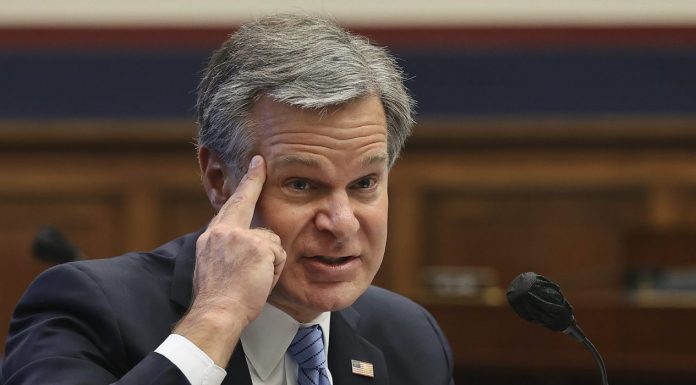Note: The original headline for this story was, “FBI Purportedly Struggling to Crack Trump Shooter’s Phone.” Shortly after the publication of that story, the FBI released an update at 3:05 p.m. on Monday, announcing that techs have now hacked into the would-be Trump assassin’s phone. Headline USA is adding that fact to the top of this story and changing the headline, but the rest of the article remains unchanged.
(Ken Silva, Headline USA) The FBI has reportedly taken alleged Trump shooter Thomas Matthew Crooks’s phone to its lab in Quantico, Virginia, where its technicians are working to unlock it as part of the investigation into his possible motives.
The FBI announced at 3:05 p.m. that its techs have gained access to Thomas Matthew Crooks’ phone, and they continue to analyze his electronic devices.
According to Fox News reporter Laura Ingraham, the FBI’s finest techies struggled at first to crack the phone.
“An official is telling Fox they believe the shooter acted alone. We’re also learning they can’t get into his cellphone,” Ingraham said on Sunday. “They have it at Quantico but haven’t been able to get any data out of it.”
BREAKING 🚨 Quantico reportedly cannot get into the alleged shooter’s cell phone, who they state: "Acted alone."
— Toria Brooke (@realtoriabrooke) July 15, 2024
The FBI’s claim that it can’t crack Crooks’s phone should be treated with skepticism. The bureau has a track record of lying about such matters.
The most notorious case of the FBI claiming it couldn’t crack an encrypted phone happened in December 2015, in the wake of the San Bernardino shooting, in which two shooters killed more than a dozen victims.
At the time, the FBI claimed it couldn’t access one of the shooters’ iPhones. The bureau sought a court order to force Apple to help the FBI break the phone’s encryption.
Apple resisted the FBI’s coercsion, but the dispute was never fully litigated. It turned out, the FBI hired an Australian cybersecurity firm to hack the phone around March 2016 or shortly thereafter. The purported true story of how the FBI unlocked the phone wasn’t told until 2021.
A similar situation occurred in May 2020, when then-Attorney General William Barr and FBI Director Chris Wray criticized Apple for not helping investigators who were attempting to gain access to two iPhones used by Mohammed Alshamrani, who launched a terror attack at the Pensacola Naval Air Station in Florida in December 2019.
Wray has continued his anti-encryption throughout the years. In March 2021, for example, he told the Senate Judiciary Committee that encryption was stifling his agents from investigating domestic extremism.
“Like Alshamrani, the plotters who sought to kidnap the governor of Michigan late last year used end-to-end encrypted apps to hide their communications from law enforcement. Their plot was only disrupted by well-timed human source reporting and the resulting undercover operation,” Wray said at the time.
“Subjects of our investigation into the Jan. 6 Capitol siege used end-to-end encrypted communications as well.”
According to Wray and other law enforcers, tech companies should be able to build “backdoors” into their encryption that preserves privacy, while allowing for access when necessary. That, they say, strikes the proper balance between data security and national security.
However, numerous tech experts, civil libertarians, and others say that it’s impossible to build a backdoor that can’t be exploited by hackers. They also say that by banning encryption, the United States would be following in the footsteps of authoritarian countries such as China, which blocked the encrypted messaging app Signal.
“It is important to understand that any kind of back door (or front door) access for the ‘good guys’ can also be exploited by the ’bad guys,’” the pro-industry Information Technology & Innovation Foundation stated in a July 2020 report, in the midst of the Apple-Barr controversy.
“For example, key escrow systems would introduce new attack vectors that could allow attackers to gain access to encrypted information, such as by compromising the system that maintains copies of the keys.”
Ken Silva is a staff writer at Headline USA. Follow him at twitter.com/jd_cashless.

